The new BYD BD11 double-decker bus is tipped to replace London's Routemaster with a maximum range of more than 400 miles and high levels of passenger comfort.
Launched today at the London Bus Museum, the Chinese firm's latest electric bus arrives 11 years after it first launched a bus in the UK and shortly after it delivered its 1800th bus here. Its fleet has now racked up more than 18 million miles in service.
The BD11 has a total battery capacity of upto 532kWh - the largest of any electric commercial vehicle currently available in the UK.
Usable capacity is pegged at 457kWh, and although BYD has yet to confirm a range, it said the bus will travel more than 0.9 miles per kWh, suggesting a usable range of more than 400 miles. But as with its other electric buses, the BD11 will use a modular battery system so operators can alter it to fit the use profile of the vehicle. Most London buses travel between 100 and 200 miles a day.

BYD touts the proven safety and durability credentials of its trademark Blade battery technology (as also deployed in its electric cars) as a key factor in the BD11's appeal, suggesting it can remain in operation for between 12 and 20 years.
The fact that the company produces its batteries entirely in-house means that refurbishing the driveline of the BD11 will be much cheaper and more viable than if it had used a pack from a third-party supplier.
The battery is a structural component of BYD's new e-Platform 3.0 commercial vehicle platform, which has positive implications for ride comfort and rigidity, BYD said.
Other highlights of the platform include in-wheel motors – which maximise cabin space and help to facilitate an 8.0-metre turning radius – and standard-fit active suspension.



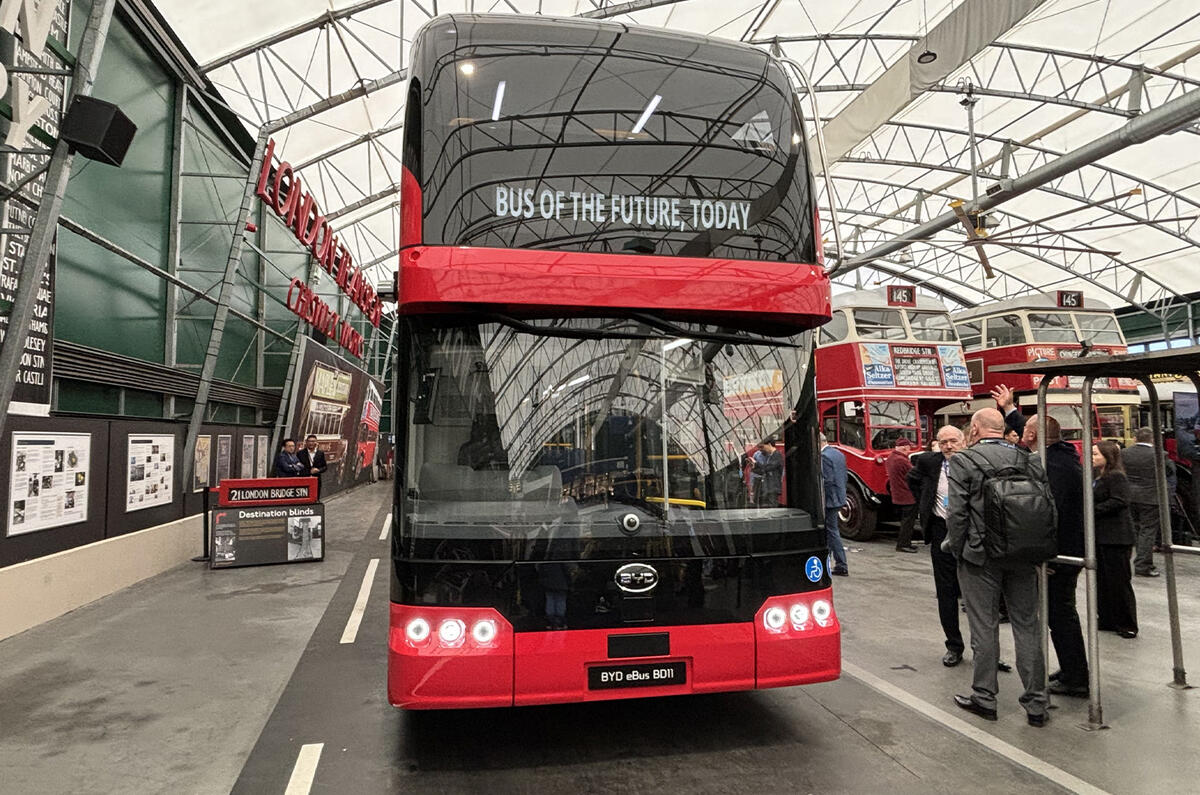
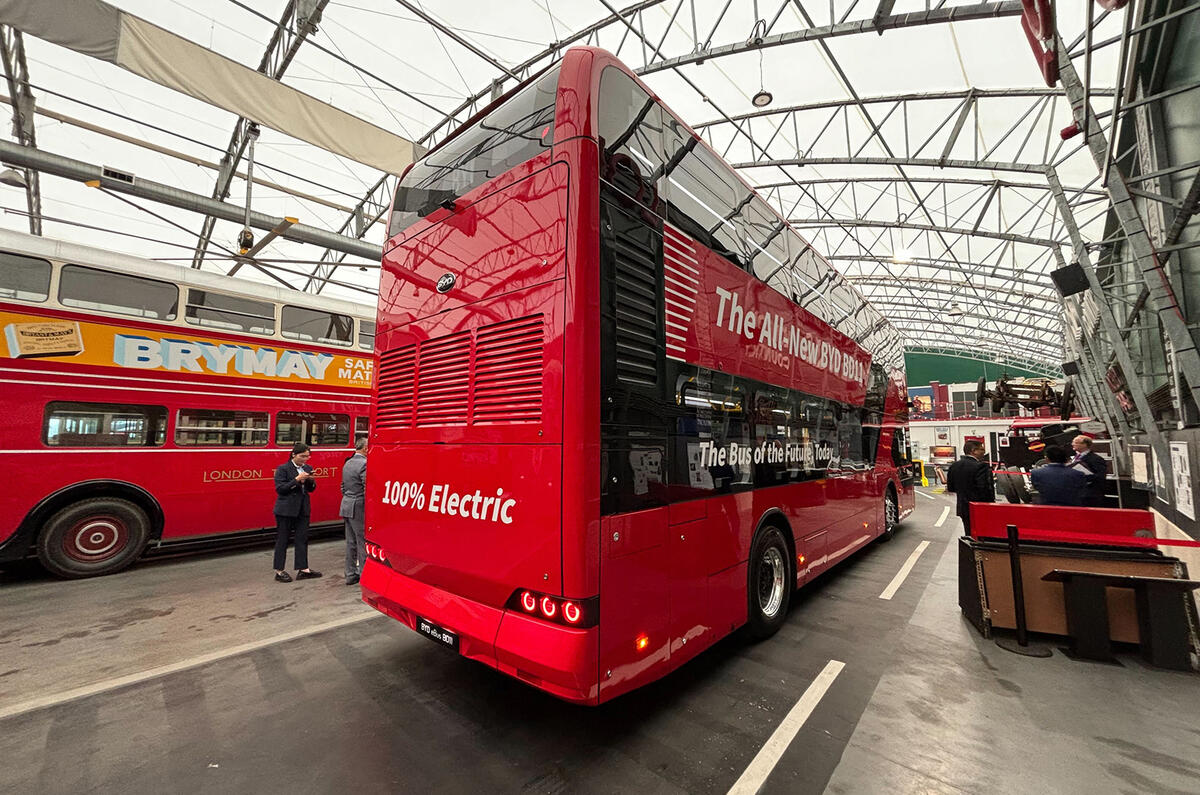
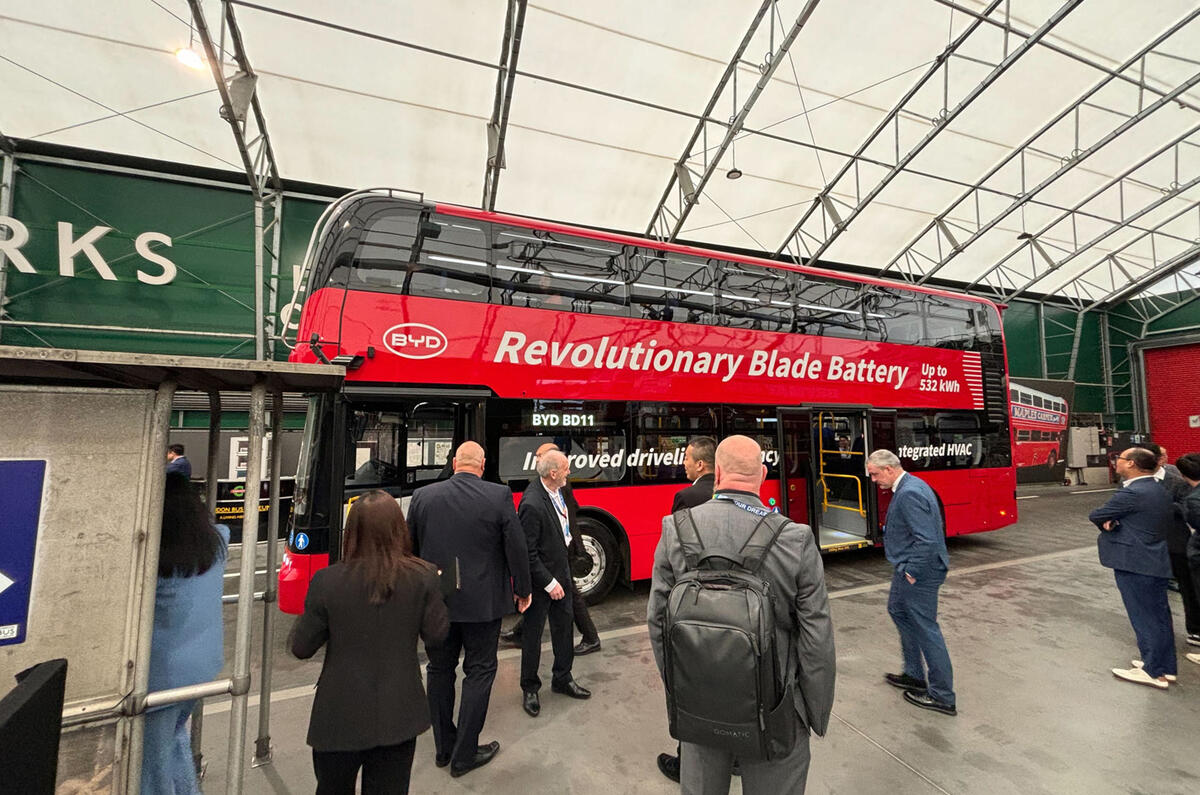
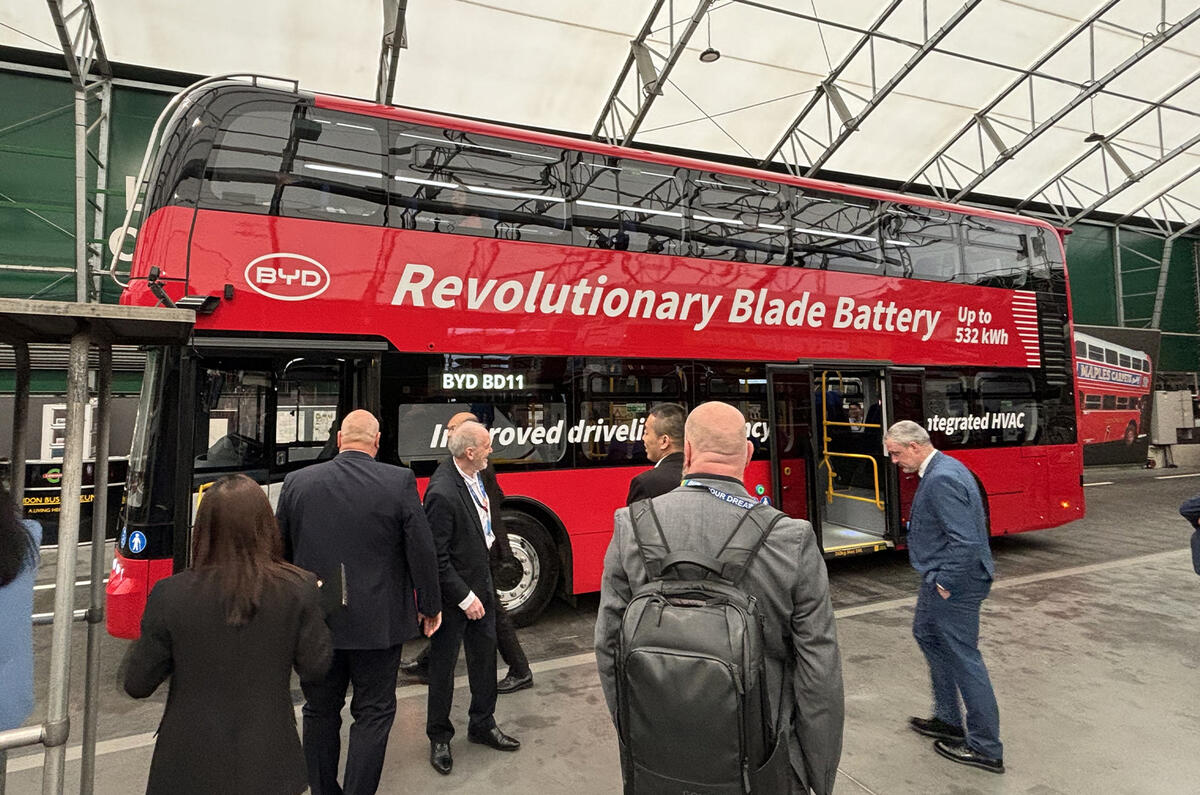
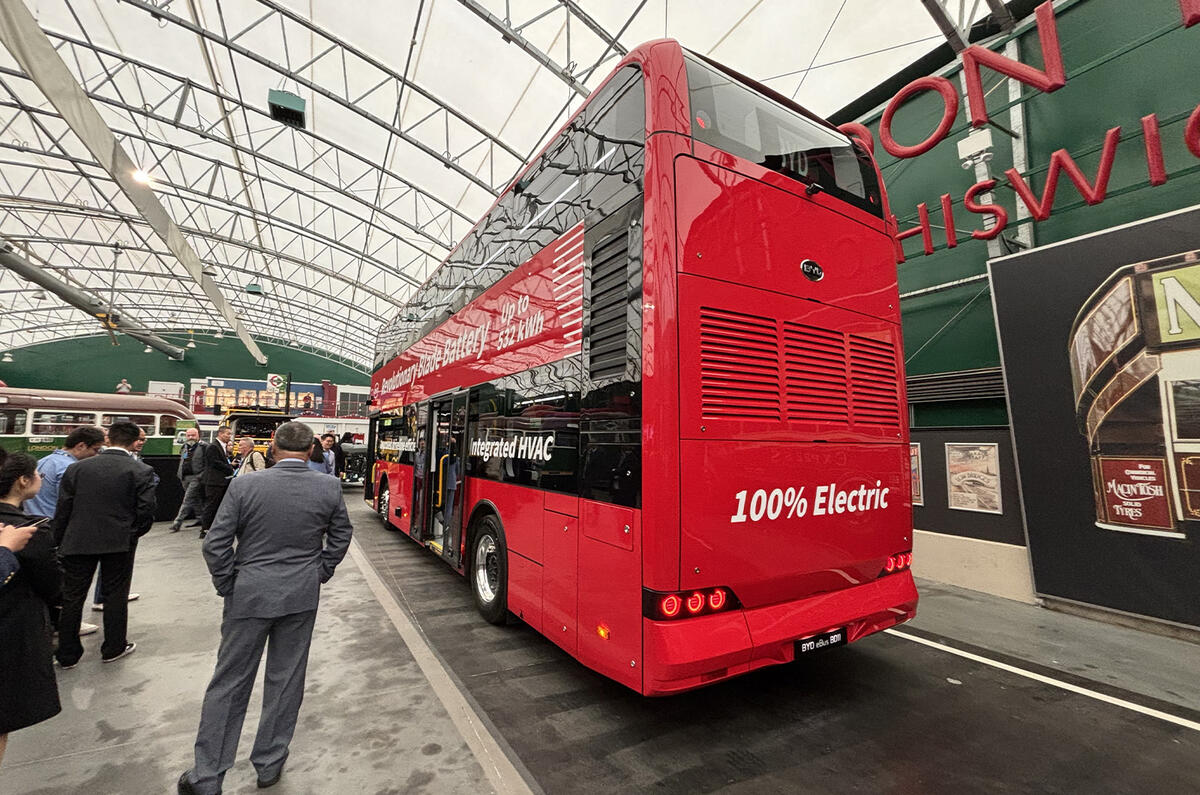
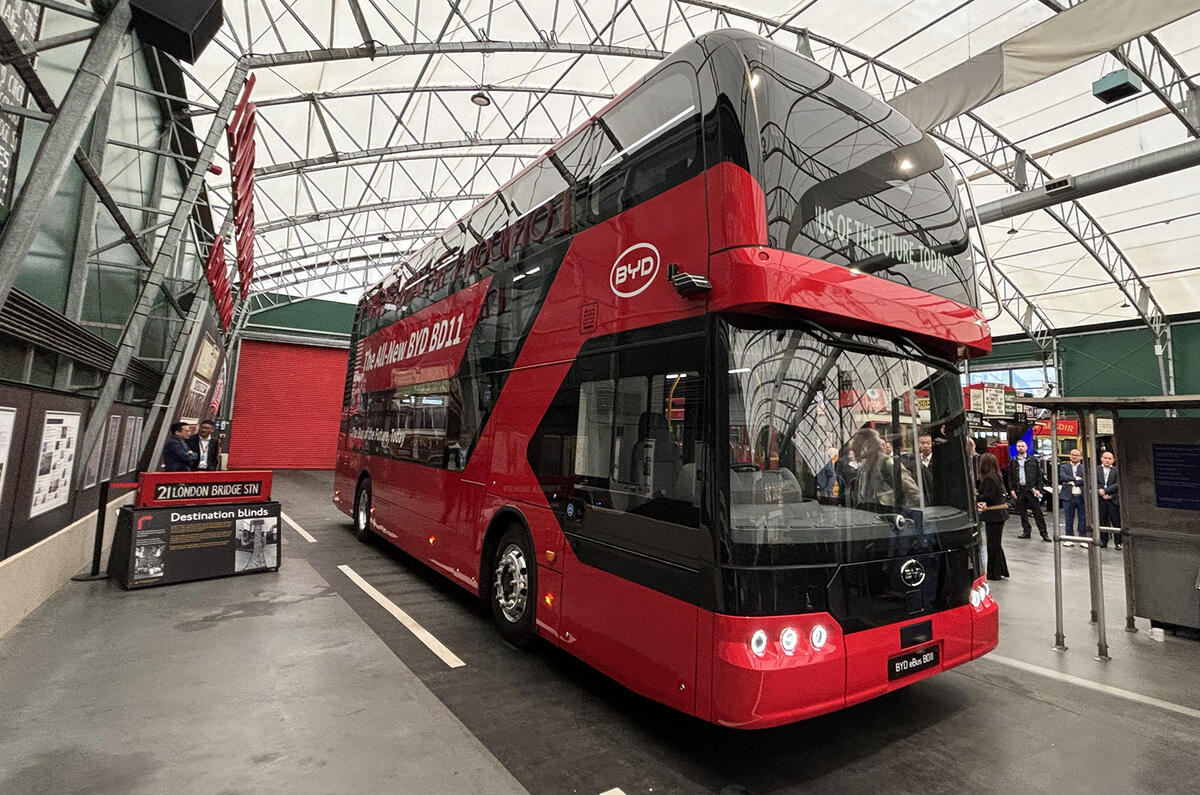
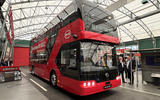
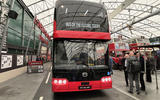
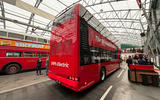
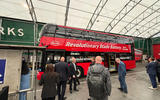
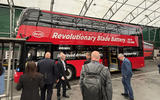
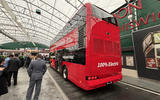
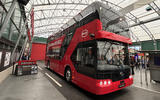

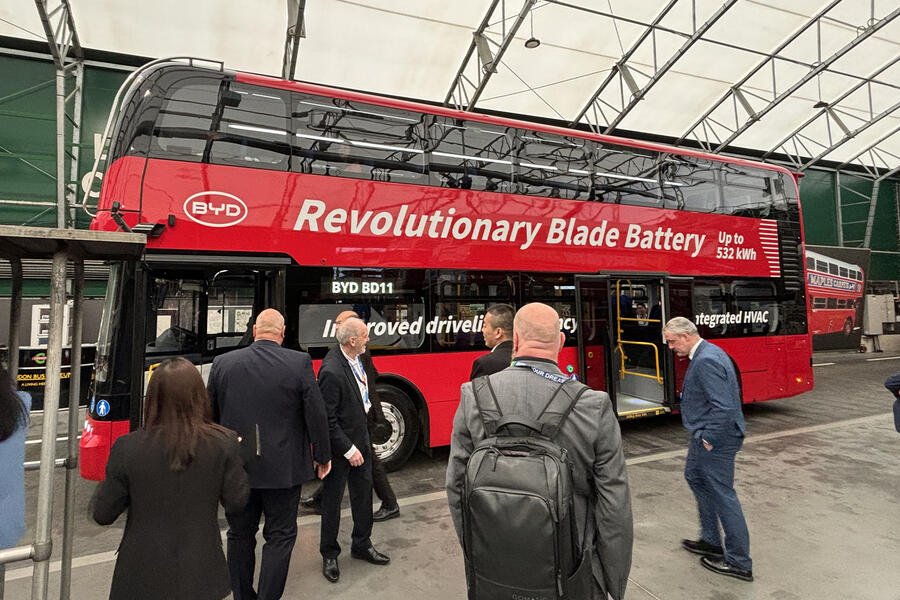






Join the debate
Add your comment
Did i miss it? Surely the article must say what a typical diesel bus costs. I am assuming a lot less than £400,000. Will the fares be going up to cover the cost? And a 12 year life. Thats not great is it.
Anyway, i doubt it will be long before one is on the front pages with flames shooting out from underneath it.
Also, I never know how much to believe on social media, but there has been a lot about BYD battery fires and videos of battery buses going up in flames. An elderly lady in London read of one such incident a couple of days ago and asked me how she could avoid using a battery bus. I told her: if you can't hear an engine, walk away!
We, yes we are responsible , we became an import economy,successive Governments closed down under performing brands because of us , there seems to be a new car from China every week,and that's is only one area of economy, yes, we need to fix it, it's not the Tories fault, it's whoever is in power who inherits the mess from the previous encumbant,it must be like trying to Knit Fog!. A fact is that just about any country who fought against Great Britain and the allies just now have had better economic success, now, how's that happened?